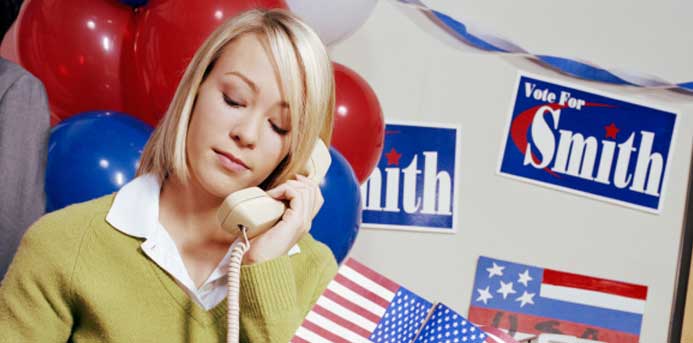With Election Day only six months away, election season is already in full swing.
For teenagers, working on a campaign is a great way to learn about the political process and get a behind-the-scenes look at democracy in action.
Getting your child involved in a campaign is easier than you might think. Here are some common myths about political internships:
Myth: You have to be well connected to get your child a political internship.
Truth: You don’t have to have any special connections to get your teen to be part of a campaign. Usually, all the teen needs to do is simply go to a candidate’s website or call the office and submit his or her resume.
Myth: All you’ll do in a political internship is put up signs and answer phones.
Truth: Everyone on a campaign starts by doing grunt work, but interns who prove they’re bright will quickly be given more responsibilities, such as researching policy issues, doing data analysis of neighborhoods, or planning events such as town hall meetings.
Myth: Local races are boring.
Truth: Mick Paskiewicz, a campaign staffer for Joe Walsh’s campaign for the 8th district, says political internships for local congressional races can teach students a lot.
“This campaign in particular is going to be one of the most nationally watched races in the country,” Paskiewicz says. “You’re going to see what the big leagues look like.”
Myth: Having a political internship means you have to work at least 100 hours a week.
Truth: “You can put in as much or as little time as you want,” says Adam Roth, 19, who is president of Northwestern’s College Democrats.
In general, the difference between volunteering and having a political internship is volunteers show up when they can, and interns make a commitment to come in a certain number of hours per week.
Myth: You have to be in college to have a political internship.
Truth: Bright high school kids have just as good of a chance to work on a campaign as college students. Bryan Reed, political director for Bob Dold’s campaign in the 10th district, said there was a 7th grader who interned for Mark Kirk’s campaign in 2008 who is still interning today. And Roth, 19, started canvassing for Barack Obama when he was a freshman in high school.
Myth: Having a political internship will look good on your resume.
Truth: Yes, having a political internship will look good on your resume — and it’s a must if your child plans to go into politics. But even if your child is planning to go into a different career, volunteering for a campaign can teach important life skills such as how to work in a fast-paced environment, be resourceful, talk to people articulately and work as part of team.
“It certainly helps career-wise as to be an intern because prospective employers want to see that you… have a broad set of skills,” says Reed Adamson, campaign manager for Brad Schneider’s campaign in the 10th district.
How to Get Involved : Here are some local congressional races that need interns this summer.
8th District
Joe Walsh (Republican)
Tammy Duckworth (Democrat)
9th District
Tim Wolfe (Republican)
Jan Schakowsky (Democrat)
10th District
Bob Dold (Republican)
Brad Schneider (Democrat)

